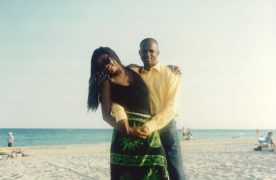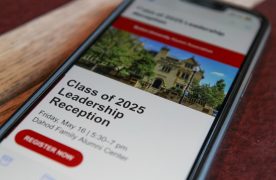On Saturday, our president tweeted about CNN and “fake news” as usual.
The multi-million dollar media network, whose parent company, Time Warner, is slated to merge with AT&T, Trump’s most pressing enemy. It is an enemy so profound and dangerous that he attacks it from the bully pulpit whenever he can. His Justice Department, headed by former Alabama Sen. Jeff Sessions, is trying to stop the merger that would undoubtedly benefit CNN in the long run.
Certainly, massive mergers are no good, but Trump is not blocking the merger because of his antitrust, anti-vertical integration economic philosophy. Rather, he’s blocking it because it’s CNN, an extremely popular network with a fair amount of influence both at home and abroad, that is undeniably unfavorable to him. To be fair, though, the executives at CNN do try to overcompensate for this and have Trump cronies such as Corey Lewandowski and Jeffrey Lord defend him.
Trump has never been a fan of the press, and he’s been talking to “open up libel laws” ever since he descended down that escalator in 2016. Of course, the press has issues, and to deny that, or acknowledge it yet not call for meaningful reform, is cretinous. The press, historically, marches in step with the United States’ war efforts. They tried, so desperately, to sell the Iraq war to us in the early 2000s, and they succeeded, much to the majority’s chagrin. The press also demonizes people of color in its new stories. Think of the pictures even the most respectable journalists uses for their articles when a black man or woman is gunned down by the police. Think of The New York Times’ profile of Michael Brown, who, though having died for no good reason and by no fault of his own, was “no angel.” It normalizes and humanizes white nationalists like Richard Spencer, or even outright Nazis themselves (I’m talking, of course, about the glowing 1922 profile of Hitler titled “Hitler in Bavaria” published by the Times).
Even still, the free press is a bulwark against excessive power, against corruption and against tyranny. Not a single one of our presidents liked the press and rightfully so. John Adams and Thomas Jefferson cursed the papers. Taft could not stand the likes of the muckrakers at McClure’s Magazine. Even Obama, according to his senior-most advisors, was weary of leaks getting out into the press. The point of journalism is to keep our leaders — of whatever sector — be it politics, business or media, on their toes is so that they’re uncomfortable, so that they adjust their behavior because they know a ton of eyes are watching. They’re supposed to hate it. The press is supposed to be an adversary — a pesky thorn in the side of the executive.
Tyranny flushes under the guise of a closed society, but topples when anyone and everyone can launch detailed inquiries into events, people, projects and things. Naturally, then, journalism brought down the oil trust in the 1910s. It exposed years of corruption and child abuse in the Catholic diocese of Boston. It forced Nixon out of office. It outed Harvey Weinstein, Louis C.K., Al Franken and Donald Trump as sexual predators.
A free press is essential not only to the functioning of a viable and healthy democracy, but it is also a check on blatant and excessive power that is often wielded at the expense of regular people. Without it, we risk quite a dark and dangerous future — one where the president can do whatever and whenever with little to no scrutiny.
Freedom of the press is enshrined as an amendment for a reason — it ought to be protected. And for a president who belongs to a party that bows to the Constitution, who points fingers at Second Amendment violations or freedom of religion violations, Trump should not and really cannot exclude one of the most fundamental American rights.










